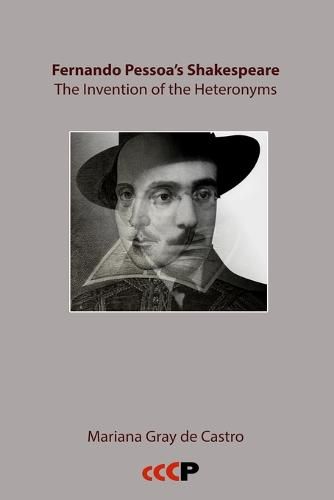Readings Newsletter
Become a Readings Member to make your shopping experience even easier.
Sign in or sign up for free!
You’re not far away from qualifying for FREE standard shipping within Australia
You’ve qualified for FREE standard shipping within Australia
The cart is loading…






In this wide-ranging book, Mariana Gray de Castro argues that William Shakespeare was the single most important literary influence at the heart of Fernando Pessoa’s creativity, the invention of the heteronyms. Focusing on Pessoa’s views on Shakespeare’s genius, his apparent invisibility as an author, his possible madness and his ambiguous sexuality, she draws upon Pessoa’s published and unpublished writings on Shakespeare, as well as the marginalia in his Shakespearean books, in order to show how and why Shakespeare is the pervasive underlying presence in the heteronymic universe. In doing so, Castro proposes a new Shakespearean interpretation of Pessoa’s heteronyms. Like a good literary sleuth, Mariana Gray de Castro has searched for - and discovered - why Fernando Pessoa was so interested in the Shakespeare authorship controversy, in Shakespeare’s genius and possible madness, and in his presumed ‘sexual inversion’, and she shows us what all of this had to do with the creation of the heteronyms. Pessoa, who loved detective stories and wrote a number of his own, would have been pleased. RICHARD ZENITH
$9.00 standard shipping within Australia
FREE standard shipping within Australia for orders over $100.00
Express & International shipping calculated at checkout
In this wide-ranging book, Mariana Gray de Castro argues that William Shakespeare was the single most important literary influence at the heart of Fernando Pessoa’s creativity, the invention of the heteronyms. Focusing on Pessoa’s views on Shakespeare’s genius, his apparent invisibility as an author, his possible madness and his ambiguous sexuality, she draws upon Pessoa’s published and unpublished writings on Shakespeare, as well as the marginalia in his Shakespearean books, in order to show how and why Shakespeare is the pervasive underlying presence in the heteronymic universe. In doing so, Castro proposes a new Shakespearean interpretation of Pessoa’s heteronyms. Like a good literary sleuth, Mariana Gray de Castro has searched for - and discovered - why Fernando Pessoa was so interested in the Shakespeare authorship controversy, in Shakespeare’s genius and possible madness, and in his presumed ‘sexual inversion’, and she shows us what all of this had to do with the creation of the heteronyms. Pessoa, who loved detective stories and wrote a number of his own, would have been pleased. RICHARD ZENITH